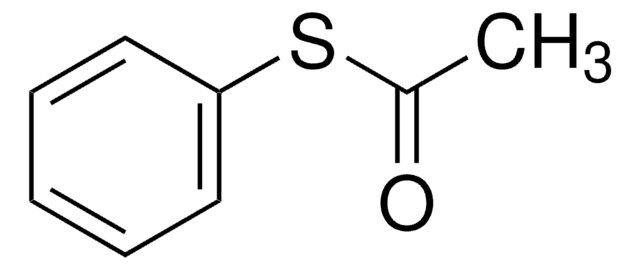230197
Triethylsilane
99%
Synonym(s):
NSC 93579, Triethylhydrosilane, Triethylsilicon hydride
About This Item
Recommended Products
Quality Level
Assay
99%
form
liquid
reaction suitability
reagent type: reductant
refractive index
n20/D 1.412 (lit.)
bp
107-108 °C (lit.)
density
0.728 g/mL at 25 °C (lit.)
SMILES string
CC[SiH](CC)CC
InChI
1S/C6H16Si/c1-4-7(5-2)6-3/h7H,4-6H2,1-3H3
InChI key
AQRLNPVMDITEJU-UHFFFAOYSA-N
Looking for similar products? Visit Product Comparison Guide
Related Categories
Application
- Synthesis of a spiro-oxindole blocker of Nav1.7 for the treatment of pain
- Redox initiated cationic polymerization
- Beckmann rearrangement of cyclododecanone oxime
- Regioselective reductive coupling of enones and allenes
Catalyst reactivation after catalyst polymerization of styrene
Studies involving the prediction of organosilicon flash points
related product
Signal Word
Danger
Hazard Statements
Precautionary Statements
Hazard Classifications
Eye Irrit. 2 - Flam. Liq. 2 - Skin Irrit. 2 - STOT SE 3
Target Organs
Respiratory system
Storage Class Code
3 - Flammable liquids
WGK
WGK 2
Flash Point(F)
21.2 °F
Flash Point(C)
-6 °C
Personal Protective Equipment
Certificates of Analysis (COA)
Search for Certificates of Analysis (COA) by entering the products Lot/Batch Number. Lot and Batch Numbers can be found on a product’s label following the words ‘Lot’ or ‘Batch’.
Already Own This Product?
Find documentation for the products that you have recently purchased in the Document Library.
Customers Also Viewed
Our team of scientists has experience in all areas of research including Life Science, Material Science, Chemical Synthesis, Chromatography, Analytical and many others.
Contact Technical Service












